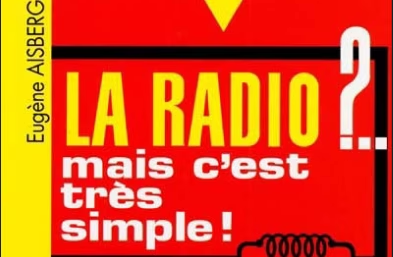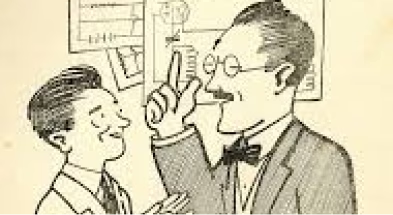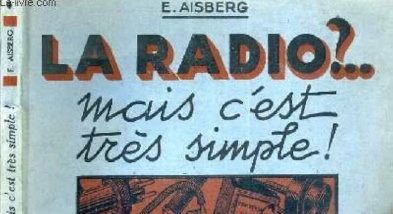“La radio? mais c’est très simple”
By Eugène Aisberg

"La radio mais c'est très simple"
A timeless classic of technical popularisation
The rediscovery of old radio sets highlights the historical importance of this medium, magnificently illustrated by Eugène Aisberg's popular technical classic La radio mais c'est très simple, published in 1935.

Curiosus and Ignotus, the principal characters of the book
How is this subject so complex adressed ?
Aisberg takes an innovative approach to explaining the principles of broadcasting. Through a series of dialogues between Curiosus (the knower) and Ignotus (the learner), the author demystifies the complex concepts of radio waves. This method, reminiscent of the Socratic dialogues, makes the technology accessible to a wide audience.
The book covers a wide range of subjects, from the basic principles of electricity to the complexities of radio circuits. Aisberg explains how antennae pick up signals, how frequencies are modulated and demodulated, and how sound is finally produced by the loudspeaker. Each chapter, or ‘talk’, gradually builds the reader's understanding.
A book that remains relevant through the ages
Eugène Aisberg's ‘La radio mais c'est très simple’ remains relevant despite technological advances. The fundamental principles he sets out are still the basis of modern communications. The book has been reprinted many times, updating the content while retaining the original teaching approach.
By making radio technology comprehensible, Eugène Aisberg helped to democratise the medium. Readers could better appreciate the programmes they listened to, whether on the move or at home.
Whether you're a radio enthusiast, a student of electronics or just curious, Eugène Aisberg's book remains a reference.
It reminds us that, despite the apparent complexity of the technology, the fundamental principles can be explained in a simple and engaging way.

“La Radio mais c’est très simple” 13th edition
An echo of the iconic band Queen
This theme is also echoed in Queen's famous song ‘Radio Ga Ga’.
Written by Roger Taylor in 1984, it evokes a nostalgia for the days when radio dominated the media landscape, before television channels like MTV took over.
The song underlines the importance of radio waves and their ability to bring people together around a common experience.
